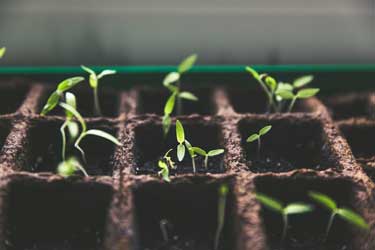Go “Green” and Save Some Green: Florida’s Agricultural Exemption

In the late 1950s, when suburbia began upending the value of farm land and agribusiness, the State of Florida passed the “Greenbelt” Law, Fla. Stat. 193.461, the answer to a concerted effort to encourage commercial agriculture.
A “use-value” exemption, the Greenbelt Law assessed a cattle ranch at the value of its current use, far below its development potential as a condominium or commercial plaza.
Property owners have long taken advantage of the Greenbelt law, infamously through “rent-a-cow” type-programs where ill-cared for livestock or the like were placed on the property to significantly reduce tax liability at the initial stages of massive redevelopment.
As farm-to-table and other direct-to-consumer movements continue to gain popularity in Florida, however, landowners and lessees should understand how to take advantage of this significant tax break as the legislature intended.
Taking Advantage of Florida’s Greenbelt Law
It is not enough to buy farm land.
In fact, the property doesn’t even have to be zoned for agricultural use.
It comes down to whether the local property appraiser thinks the land qualifies for a “bona fide agriculture purpose” under the non-exhaustive factors of Fla. Stat. 193.461(b) (considering, for example, the size of the space being used for agriculture or whether accepted farming practices are in place).
Essentially, is the agricultural use the “most significant activity” and not a “sham or deception.” Hausman v. Rudkin, 268 So. 2d 407, 409 (Fla. 4th DCA 1972). And while the Florida Supreme Court has made clear that the agricultural use does not have to be commercially profitable, there still has to be a legitimate effort to gain income. Straughn v. Tuck, 354 So. 2d 368 (Fla. 1977).
In other words, while legitimate agricultural activity needs to take place, parts of the property can be more retailer-focused.
Misuse of Florida’s Agricultural Exemption
That being said, big developers have maneuvered this exemption well and that’s unlikely to change.
Still, some local governments have attempted to crack down on misuse of this law with, you guessed it, county to county variations in the application process.
Some counties, for instance, require proof of ownership if a company owns the land, or certain agriculture certificates if the applicant purports to start a nursery or orchard, or raise livestock or horses.
Proving You Qualify For Florida’s Agricultural Tax Exemption
Regardless of where you are, the process begins with Florida Department of Revenue form DR-482. March 1st is the application deadline, and your property must already have a “bona fide agriculture purpose” as of January 1st the year you apply (or face another set of paperwork).
Overall, it’s the applicant’s burden to show a legitimate agricultural use. And exactly what qualifies for that continues to change shape (grapes, birds, now weddings, oh my!).
But for entrepreneurs entering a consumer market increasingly willing to pay the extra dollar for local product, why not save one while you’re at it?
Need help proving you have a legitimate agricultural use? Let’s chat.
Contact us to schedule a consultation.
Because we’re attorneys: This blog post is provided on an “as is” and “as available” basis as of the date of publication. We disclaim any duty to update or correct any information contained in this blog post, including errors, even if we are notified about them. To the fullest extent permitted by law, we disclaim all representations or warranties of any kind, express or implied with respect to the information contained in this blog post, including, but not limited to, warranties of merchantability, fitness for a particular purpose, title, non-infringement, accuracy, completeness, and timeliness. We will not be liable for damages of any kind arising from or in connection with your use of or reliance on this blog post, including, but not limited to, direct, indirect, incidental, consequential, and punitive damages. You agree to use this blog post at your own risk. Regarding your particular circumstances, we recommend that you consult your own legal counsel (hopefully Groves Law).

